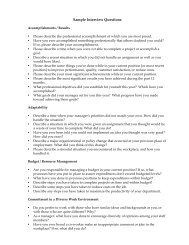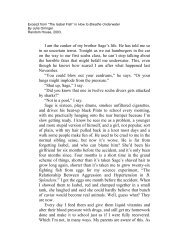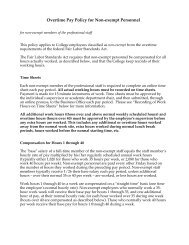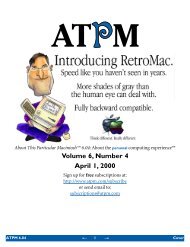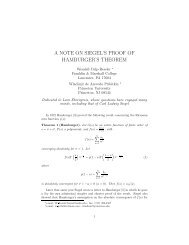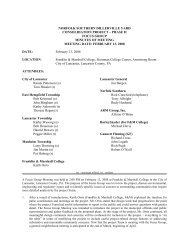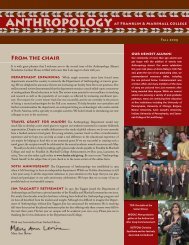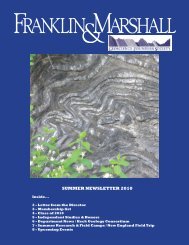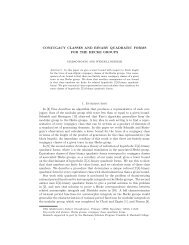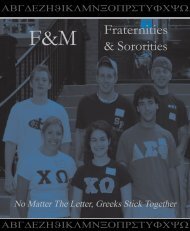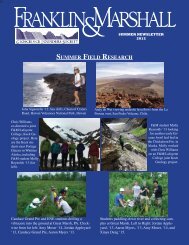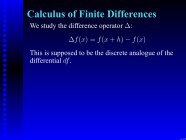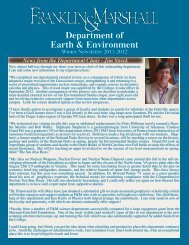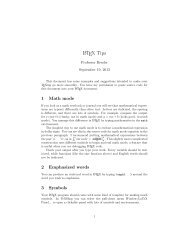Guidelines for Conducting Effective Employment Interviews
Guidelines for Conducting Effective Employment Interviews
Guidelines for Conducting Effective Employment Interviews
Create successful ePaper yourself
Turn your PDF publications into a flip-book with our unique Google optimized e-Paper software.
Tips <strong>for</strong> conducting useful reference checks:• When checking references, consider contacting your professional associates(individuals you know) who also know the candidate, as you may receive moreuseful in<strong>for</strong>mation.• When speaking to references, listen <strong>for</strong> clues that you may not be getting the fullpicture of a candidate, and then probe further with specific questions. If theindividual to whom you are speaking hesitates when responding to a question,consider probing further.• If you learn something negative about a candidate (or something positive), try toconfirm the in<strong>for</strong>mation by speaking with other references. This must be donecarefully, though, so as not to inadvertently spread false in<strong>for</strong>mation about acandidate.• If you receive in<strong>for</strong>mation of concern from a reference, ask the candidate questionsduring the interview to try to determine whether the in<strong>for</strong>mation you received isaccurate.• If unable to obtain references from a candidate's current or <strong>for</strong>mer supervisors,consider asking the candidate to provide a copy of his/her recent per<strong>for</strong>manceevaluations.In addition to employment reference checks, Human Resources will verify educationalbackground as well as conduct a criminal background check. Human Resources willassist with reference checks upon request.Formulate interview questions in advance-- Develop interview questions aimed atassessing whether each candidate possesses the skills, abilities, knowledge, andprofessional experience you previously determined are necessary <strong>for</strong> effective jobper<strong>for</strong>mance. Think about what questions will help you assess whether a candidate willbe able to achieve necessary goals and accomplishment what needs to be accomplished.Sample interview questions can be found athttp://www.fandm.edu/humanresources/article/hiring-procedures-<strong>for</strong>-professionalstaff-positions(tailor sample questions to the particular skills, knowledge, and abilitiesrequired <strong>for</strong> the vacant position). In addition, the www.hr-guide.com/ selection.htmwebsite lists numerous sample interview questions, sorted by topic.Past job per<strong>for</strong>mance is often one of the best predictors of future job per<strong>for</strong>mance.There<strong>for</strong>e, interview questions should require candidates to describe things they actuallydid or said in a previous situation and the outcome of their actions. Questions that will<strong>for</strong>ce the candidate to describe specific situations from his/her past may elicit the mostuseful in<strong>for</strong>mation (i.e., "Please describe a time when you disagreed with a co-worker.How did you handle the situation?" or "Please describe a major project on which youworked during the past year. What did you do to assure you would complete the projecton time?"). Try to avoid hypothetical questions (such as "If you had a problem with a coworker,how would you handle it?"), as candidates may simply give the response theythink you want to hear.Develop an interview guide-- Write the questions you plan to ask candidates, and leaveroom on your paper to record their responses. Writing the questions be<strong>for</strong>e the interviewmakes it easier to ask the right questions of each candidate, and documenting eachcandidate's responses makes it easier to assess skills and abilities after interviews. Avoid



